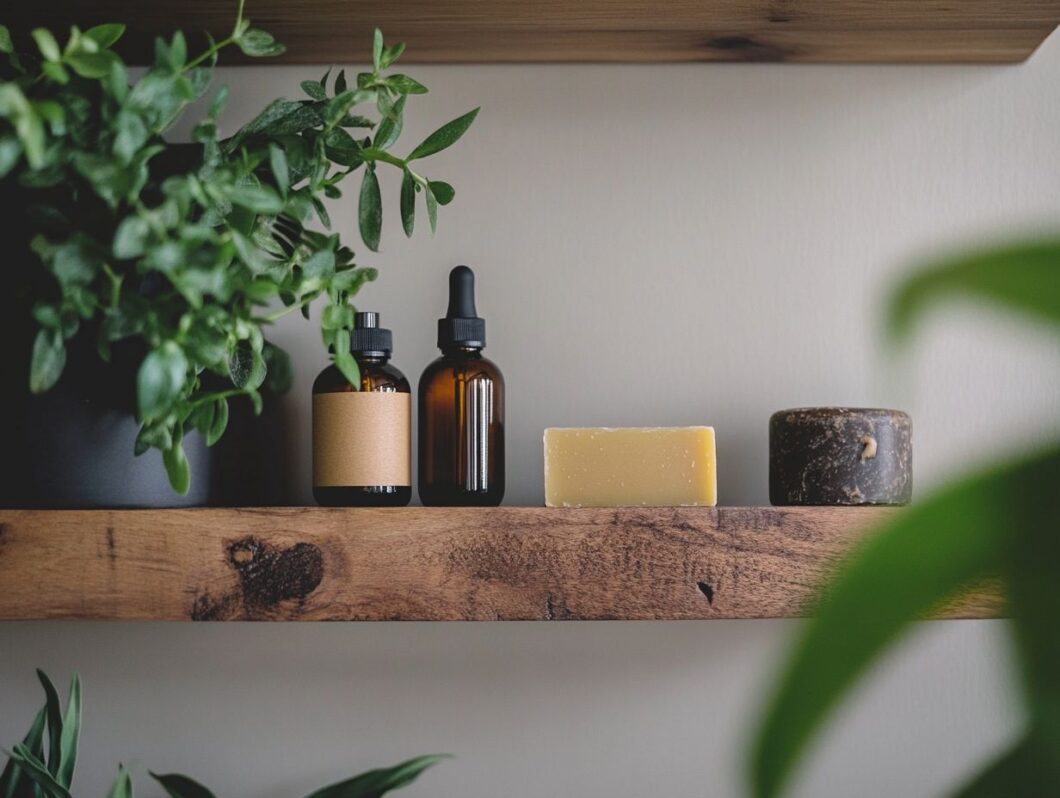In a world that is becoming increasingly conscious of the ingredients in personal care products, I have found that men are recognizing the transformative benefits of natural skincare.
Adopting a natural skincare routine is essential for achieving healthier skin and fostering a more sustainable lifestyle. From identifying harmful chemicals to creating my own DIY products, I aim to provide straightforward steps that can elevate my grooming game.
By embracing the power of nature, I seek to achieve optimal skin health with minimal effort.
Key Takeaways:
Why Men Should Consider Natural Skincare
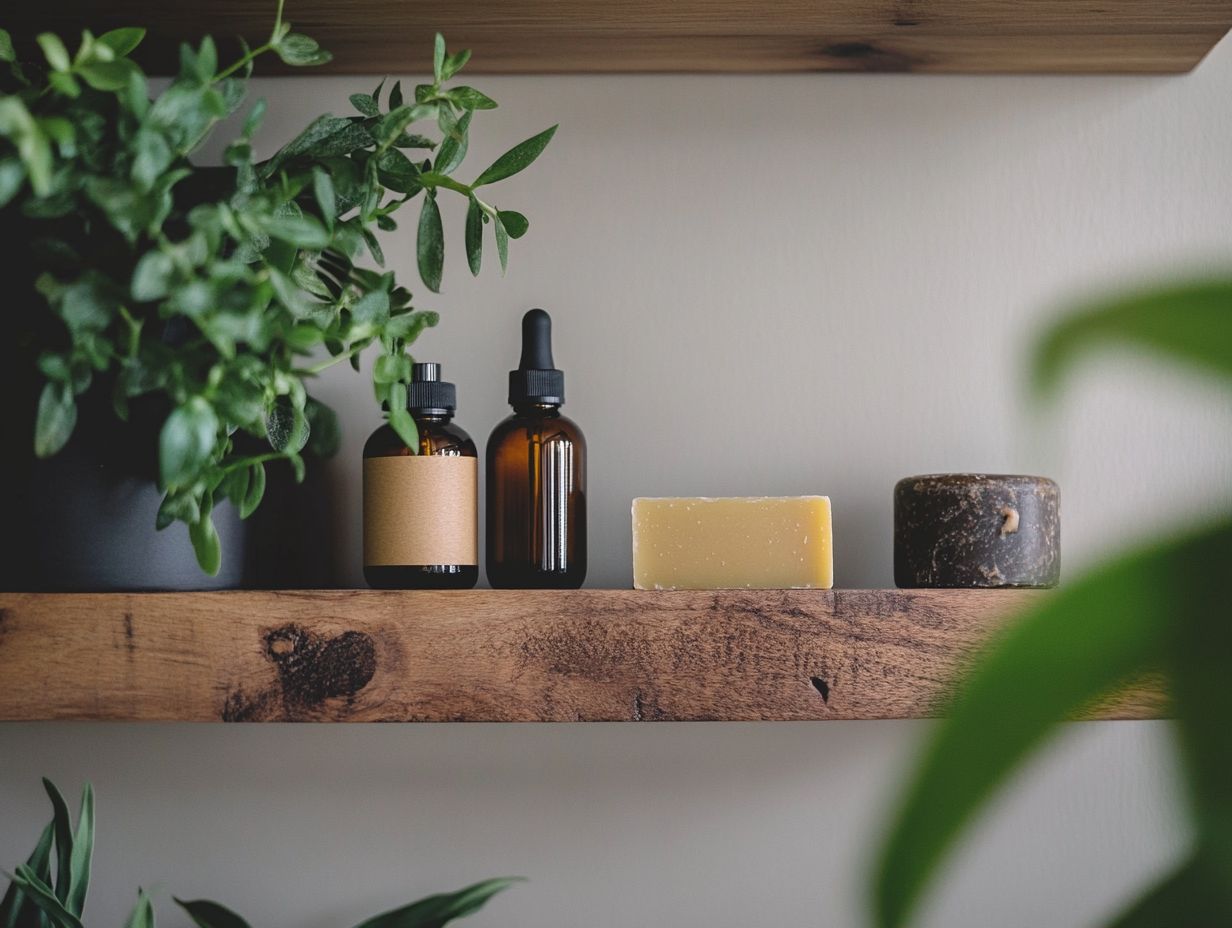
I believe that adopting a natural skincare routine is essential for men, as it involves utilizing products infused with natural ingredients to promote overall skin health and effectively address various skin concerns, such as oily skin, dry skin, and sensitivity.
Facialist Suzanne from HeyDay in New York City emphasizes the importance of natural skincare in simplifying regimens while ensuring effective care through plant-based products.
Men can significantly benefit from the anti-aging properties inherent in organic skincare routines that focus on nourishing ingredients, which can enhance both the appearance and texture of their skin. By incorporating gentle soap alternatives, I can prevent the harshness that often exacerbates skin issues.
Natural ingredients like Aloe Vera and Coconut Oil are particularly beneficial, providing hydration and soothing properties that alleviate irritation while promoting repair and regeneration. The lightweight nature of these components allows them to balance the skin without clogging pores, making them ideal for men’s typically thicker skin.
Furthermore, addressing specific skin concerns such as razor burn or acne becomes more manageable with products designed to work in harmony with one’s skin, ultimately leading to a healthier, more vibrant complexion.
Benefits of Using Natural Skincare Products
I find that using natural skincare products provides numerous benefits for men’s skin health, such as improved hydration, a balanced pH, and reduced irritation.
This is especially beneficial for individuals with sensitive skin or specific health concerns. Natural skincare nourishes the skin with botanical formulations while minimizing the risk of adverse reactions often associated with synthetic ingredients.
As a result, it serves as a gentler alternative for daily moisturizers and cleansing routines.
Healthier Skin and Environmental Impact
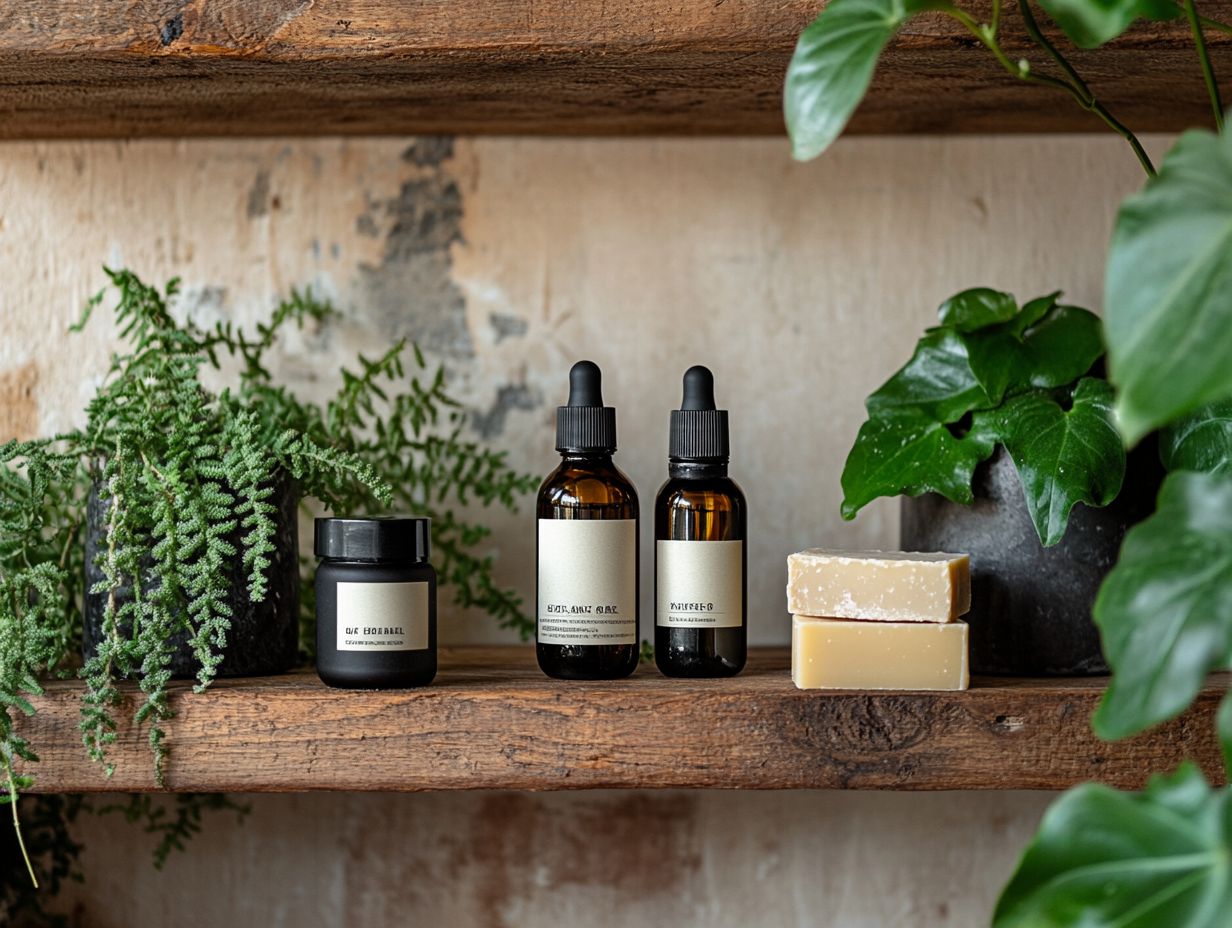
Choosing natural skincare not only leads to healthier skin for me, but it also has a positive impact on the environment. These products typically embrace sustainable practices and utilize biodegradable ingredients. By selecting skincare items made from organic materials like Shea Butter and Green Tea, I can enjoy their anti-aging benefits while contributing to a cleaner planet.
The focus on nourishing ingredients extends beyond my personal benefits; it signifies a commitment to preserving our ecosystems. Natural skincare options often omit harmful chemicals, thereby reducing pollution and waste in our water systems.
This holistic approach nurtures my skin and aligns the beauty industry with broader sustainability goals. By embracing these eco-friendly products, I am actively participating in a movement that values both self-care and planet care, ultimately fostering a lifestyle that respects natural resources and promotes a healthier future for everyone.
Common Skincare Ingredients to Avoid
When I navigate the skincare aisle, I find it essential to identify and avoid common harmful chemicals that could compromise my skin health, particularly in facial products and moisturizing routines.
Ingredients such as parabens, sulfates, and synthetic fragrances can worsen various skincare issues, leading to irritation and adverse reactions. Therefore, I prioritize choosing safer, plant-based alternatives, such as facial oils enriched with natural ingredients, to ensure my skincare regimen supports my overall skin health.
Potentially Harmful Chemicals and Additives
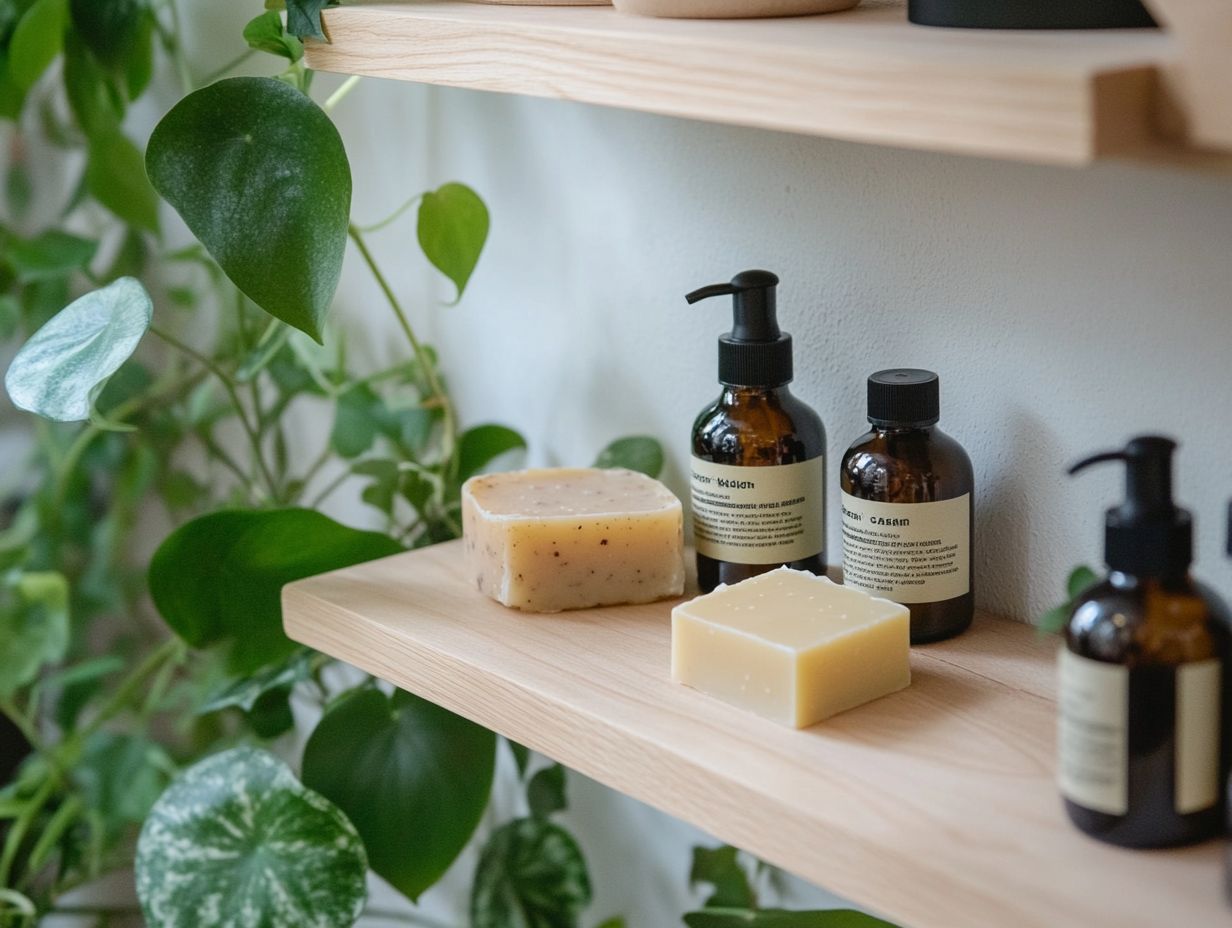
I recognize that potentially harmful chemicals and additives in skincare products can pose serious health concerns, particularly for men, including skin irritation and long-term damage. Common culprits, such as artificial preservatives and fragrances, can disrupt the skin’s natural barrier and exacerbate issues like acne and sensitivity.
Therefore, it is essential for me to carefully scrutinize ingredient labels before committing to any skincare regimen.
Ingredients like parabens, sulfates, and phthalates not only have the potential to trigger allergic reactions but also pose risks of hormonal imbalance and increased toxicity within the body. Many popular moisturizers, cleansers, and even sunscreen products can contain these harmful substances.
To protect my skin health, I choose to explore natural skincare alternatives that focus on plant-based ingredients and avoid synthetic chemicals. These natural products often feature nourishing components like aloe vera, coconut oil, and shea butter, which promote healthier skin and overall well-being without the added risks associated with harmful additives.
Simple Natural Skincare Routine for Men
I have found that establishing a straightforward natural skincare routine for men can greatly improve skin health while avoiding unnecessary complexity.
This routine emphasizes essential steps, including a consistent cleansing regimen, an effective exfoliation process, and daily moisturizing with natural ingredients.
By integrating products such as gentle cleansers, hydrating toners, and mineral sunscreen, men can effectively maintain their skin’s pH balance while addressing specific concerns like acne and dryness.
Step-by-Step Guide for Daily Skincare
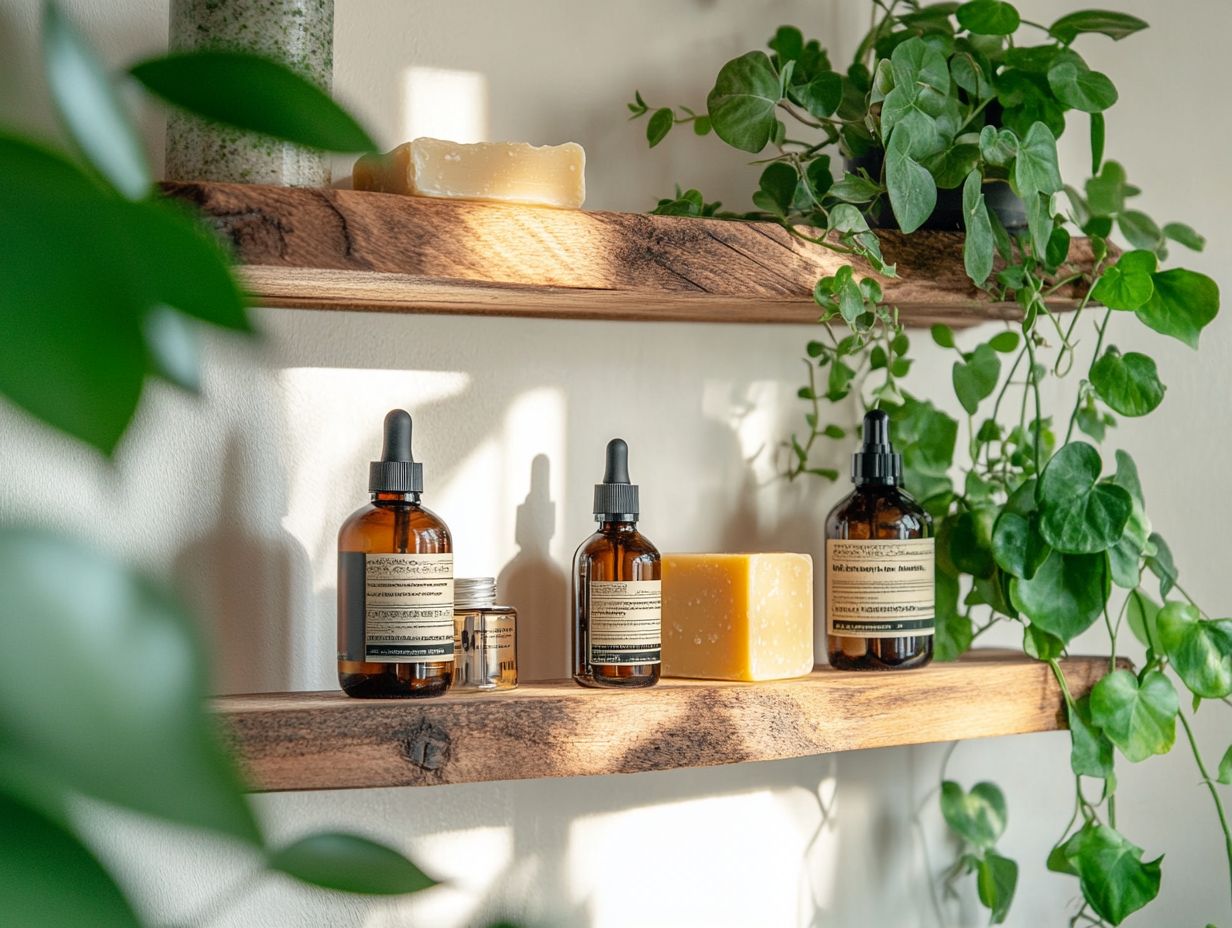
A structured daily skincare routine is essential for men aiming to achieve optimal skin health. It begins with cleansing using a gentle soap, followed by the application of toners and moisturizing products to effectively lock in hydration. I find that incorporating facial masks once or twice a week can significantly enhance the overall skincare regimen, providing tailored care that addresses specific skin needs.
Each step in this regimen is crucial for promoting healthy skin and preventing common issues such as dryness, acne, and premature aging. After cleansing, toners play a critical role in balancing the skin’s pH and removing any residual impurities, which prepares the skin for better absorption of subsequent products.
Daily use of a moisturizer is vital for locking in moisture and creating a protective barrier against environmental stressors. For those with oily or acne-prone skin, I recommend a lightweight, oil-free moisturizer, while individuals with dry skin may benefit from thicker creams that offer rich hydration.
Furthermore, regularly applying sunscreen during the day is essential to protect against harmful UV rays, ultimately enhancing the skin’s resilience and uniformity over time. By adapting product choices to specific skin types—whether normal, combination, or sensitive—I ensure maximum efficacy in achieving long-lasting results.
DIY Natural Skincare Recipes for Men
I find that DIY natural skincare recipes provide an excellent opportunity for men to craft personalized facial products using nourishing ingredients readily available in their kitchens, such as honey, aloe vera, and coconut oil.
These homemade solutions not only serve as a cost-effective alternative to commercial products but also guarantee that every ingredient is safe and beneficial for their specific skin type, ultimately promoting a healthier complexion.
Homemade Options for Cleansers, Moisturizers, and More
I find that creating homemade cleansers and moisturizers is a straightforward process that utilizes everyday natural ingredients, allowing me to customize my skincare routine to meet my specific needs. For example, I can easily prepare a gentle cleanser using honey and aloe vera, and craft a moisturizing cream from shea butter and jojoba oil. This approach provides hydration and nourishment without the additives often found in commercial products.
By focusing on my individual skin type and concerns, I can significantly enhance the effectiveness of my DIY skincare regimen.
- For oily skin, I incorporate tea tree oil into a clay mask to help regulate excess oil production while achieving a deep-cleaning effect.
- For those with dry or sensitive skin, a soothing oatmeal scrub made with ground oats, honey, and yogurt offers gentle exfoliation and hydration.
Additionally, I create a nourishing facial serum that combines vitamin E oil, rosehip oil, and a few drops of essential oils, which works wonders for promoting a radiant complexion. Each recipe I develop not only serves as a remedy but also reflects my personal commitment to addressing my unique skincare needs.
Tips for Choosing and Using Natural Skincare Products
Choosing the right natural skincare products is essential for me as I work to enhance my skincare routine. It all starts with understanding some key principles, such as reading ingredient labels and prioritizing products that contain natural and organic formulations.
I recognize that expert skincare advice highlights the significance of selecting moisturizing products tailored to my specific skin type, whether it is oily, dry, or sensitive.
What to Look for and How to Incorporate into Routine
When selecting natural skincare products, I focus on those that specifically address my health concerns and skin type to ensure a comprehensive and effective skincare routine. Incorporating products rich in nourishing ingredients, such as hemp seed oil and green tea, can significantly enhance my moisturizing regimen and overall skin health.
Plus identifying suitable ingredients, it’s essential for me to consider the unique characteristics of my skin, such as sensitivity, oiliness, or dryness. Tailoring my product choices accordingly not only maximizes their effectiveness but also minimizes the risk of adverse reactions.
For instance, those with oily skin may benefit from lightweight formulations that help balance excess oil, while individuals with dry skin should prioritize rich, hydrating creams.
I find that integrating new natural products is best done gradually. By starting with one or two items at a time, I can achieve a smoother transition and effectively identify which products deliver the best results without overwhelming my skin.


